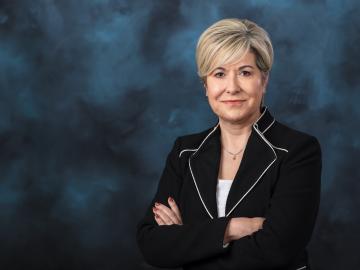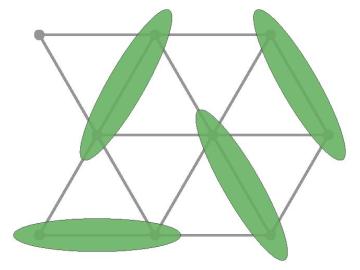
Filter News
Area of Research
News Topics
- (-) Composites (35)
- (-) Exascale Computing (67)
- (-) Quantum Computing (53)
- 3-D Printing/Advanced Manufacturing (147)
- Advanced Reactors (40)
- Artificial Intelligence (131)
- Big Data (79)
- Bioenergy (112)
- Biology (128)
- Biomedical (73)
- Biotechnology (39)
- Buildings (74)
- Chemical Sciences (86)
- Clean Water (33)
- Computer Science (226)
- Coronavirus (48)
- Critical Materials (29)
- Cybersecurity (35)
- Education (5)
- Element Discovery (1)
- Emergency (4)
- Energy Storage (114)
- Environment (218)
- Fossil Energy (8)
- Frontier (64)
- Fusion (66)
- Grid (74)
- High-Performance Computing (130)
- Hydropower (12)
- Irradiation (3)
- Isotopes (62)
- ITER (9)
- Machine Learning (68)
- Materials (157)
- Materials Science (158)
- Mathematics (12)
- Mercury (12)
- Microelectronics (4)
- Microscopy (56)
- Molten Salt (10)
- Nanotechnology (64)
- National Security (86)
- Neutron Science (171)
- Nuclear Energy (122)
- Partnerships (68)
- Physics (69)
- Polymers (35)
- Quantum Science (93)
- Security (31)
- Simulation (65)
- Software (1)
- Space Exploration (26)
- Statistics (4)
- Summit (71)
- Transportation (103)
Media Contacts

Electric vehicles can drive longer distances if their lithium-ion batteries deliver more energy in a lighter package. A prime weight-loss candidate is the current collector, a component that often adds 10% to the weight of a battery cell without contributing energy.

On Nov. 1, about 250 employees at Oak Ridge National Laboratory gathered in person and online for Quantum on the Quad, an event designed to collect input for a quantum roadmap currently in development. This document will guide the laboratory's efforts in quantum science and technology, including strategies for expanding its expertise to all facets of the field.

A 19-member team of scientists from across the national laboratory complex won the Association for Computing Machinery’s 2023 Gordon Bell Special Prize for Climate Modeling for developing a model that uses the world’s first exascale supercomputer to simulate decades’ worth of cloud formations.

A team of eight scientists won the Association for Computing Machinery’s 2023 Gordon Bell Prize for their study that used the world’s first exascale supercomputer to run one of the largest simulations of an alloy ever and achieve near-quantum accuracy.

Effective Dec. 4, Gina Tourassi will assume responsibilities as associate laboratory director for the Computing and Computational Sciences Directorate at the Department of Energy’s Oak Ridge National Laboratory.

Four scientists affiliated with ORNL were named Battelle Distinguished Inventors during the lab’s annual Innovation Awards on Dec. 1 in recognition of being granted 14 or more United States patents.

A team of researchers associated with the Quantum Science Center headquartered at the Department of Energy's Oak Ridge National Laboratory has confirmed the presence of quantum spin liquid behavior in a new material with a triangular lattice, KYbSe2.

Researchers used the world’s first exascale supercomputer to run one of the largest simulations of an alloy ever and achieve near-quantum accuracy.

The world’s first exascale supercomputer will help scientists peer into the future of global climate change and open a window into weather patterns that could affect the world a generation from now.

The Department of Energy’s Office of Science has allocated supercomputer access to a record-breaking 75 computational science projects for 2024 through its Innovative and Novel Computational Impact on Theory and Experiment, or INCITE, program. DOE is awarding 60% of the available time on the leadership-class supercomputers at DOE’s Argonne and Oak Ridge National Laboratories to accelerate discovery and innovation.


